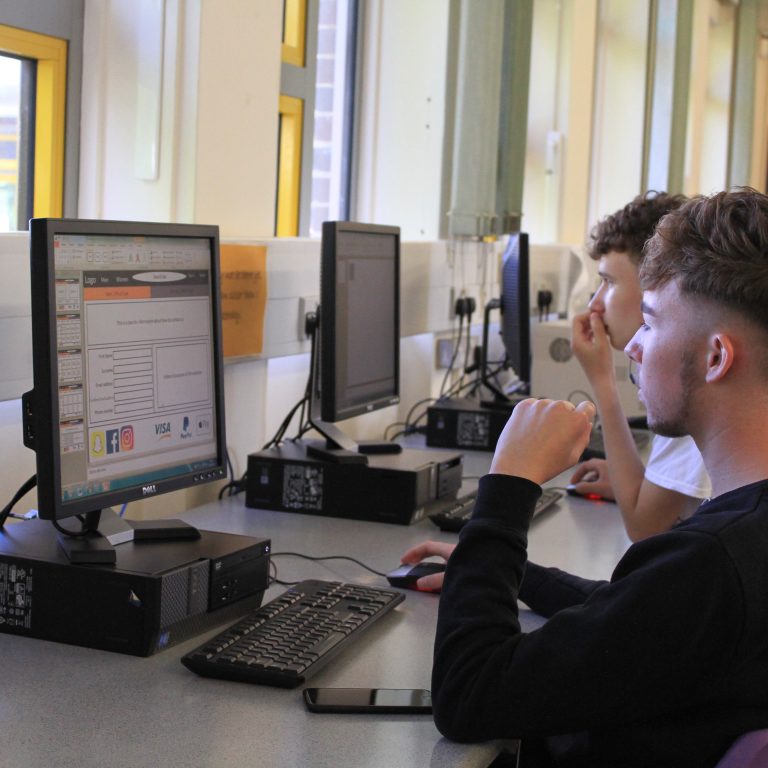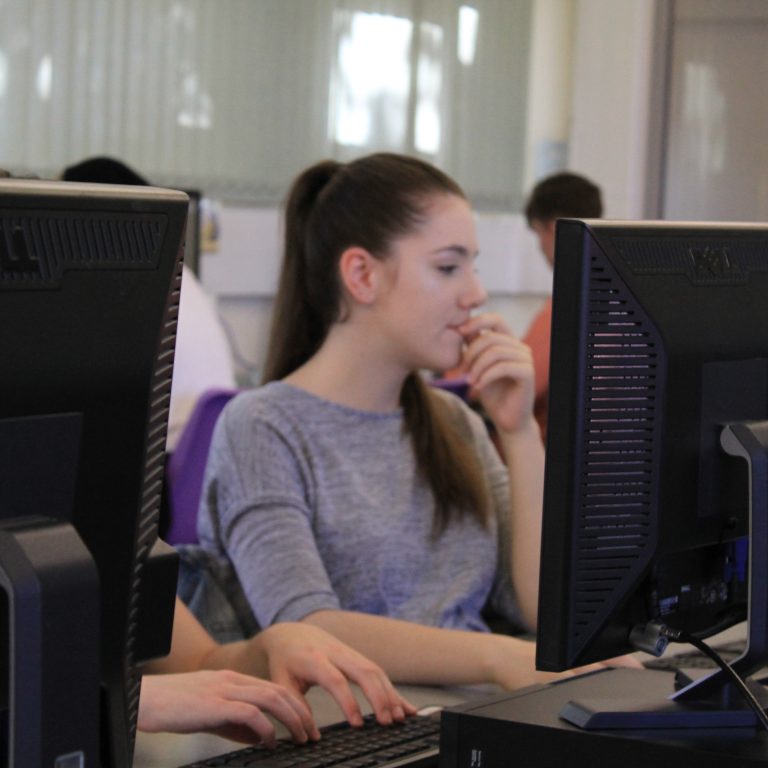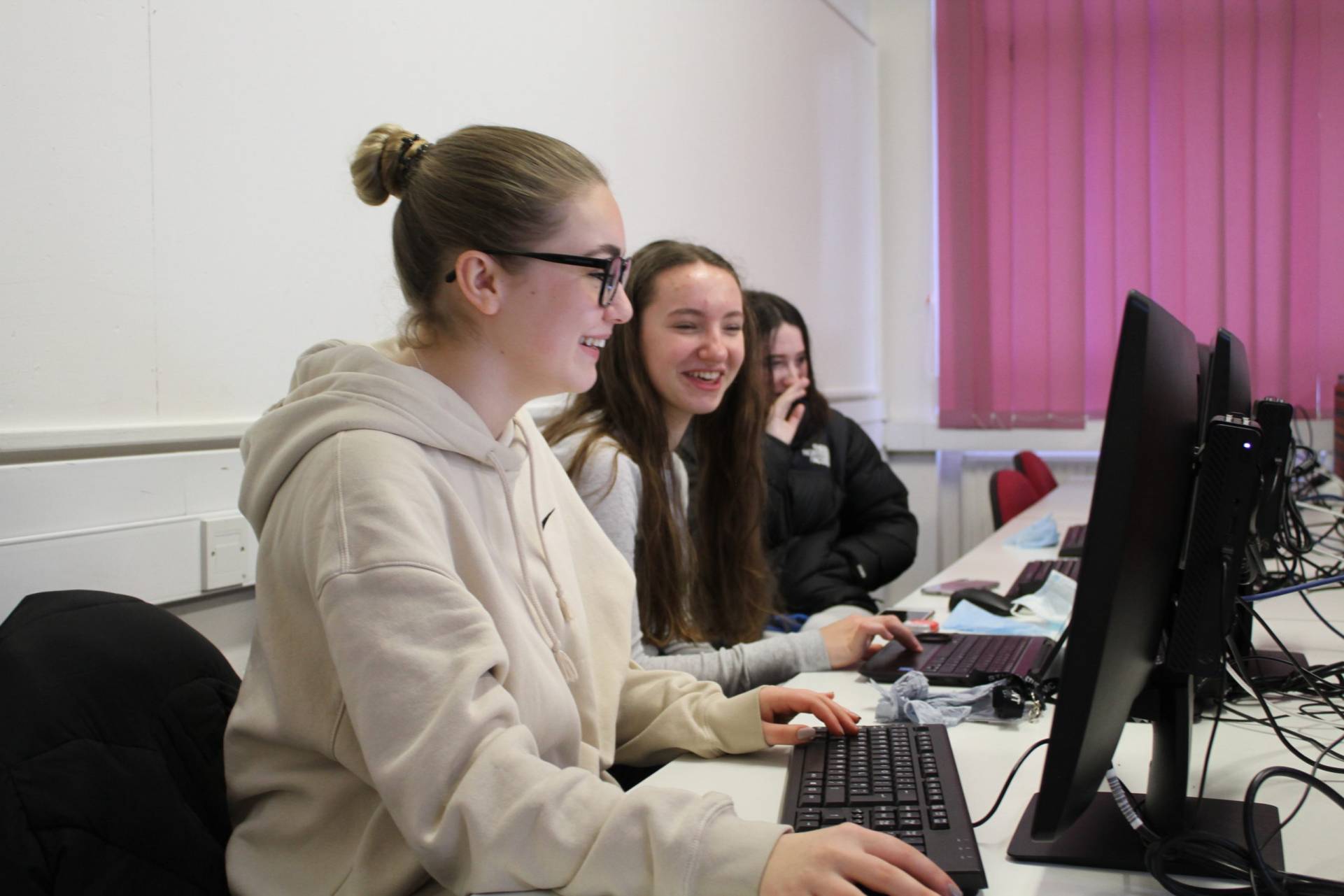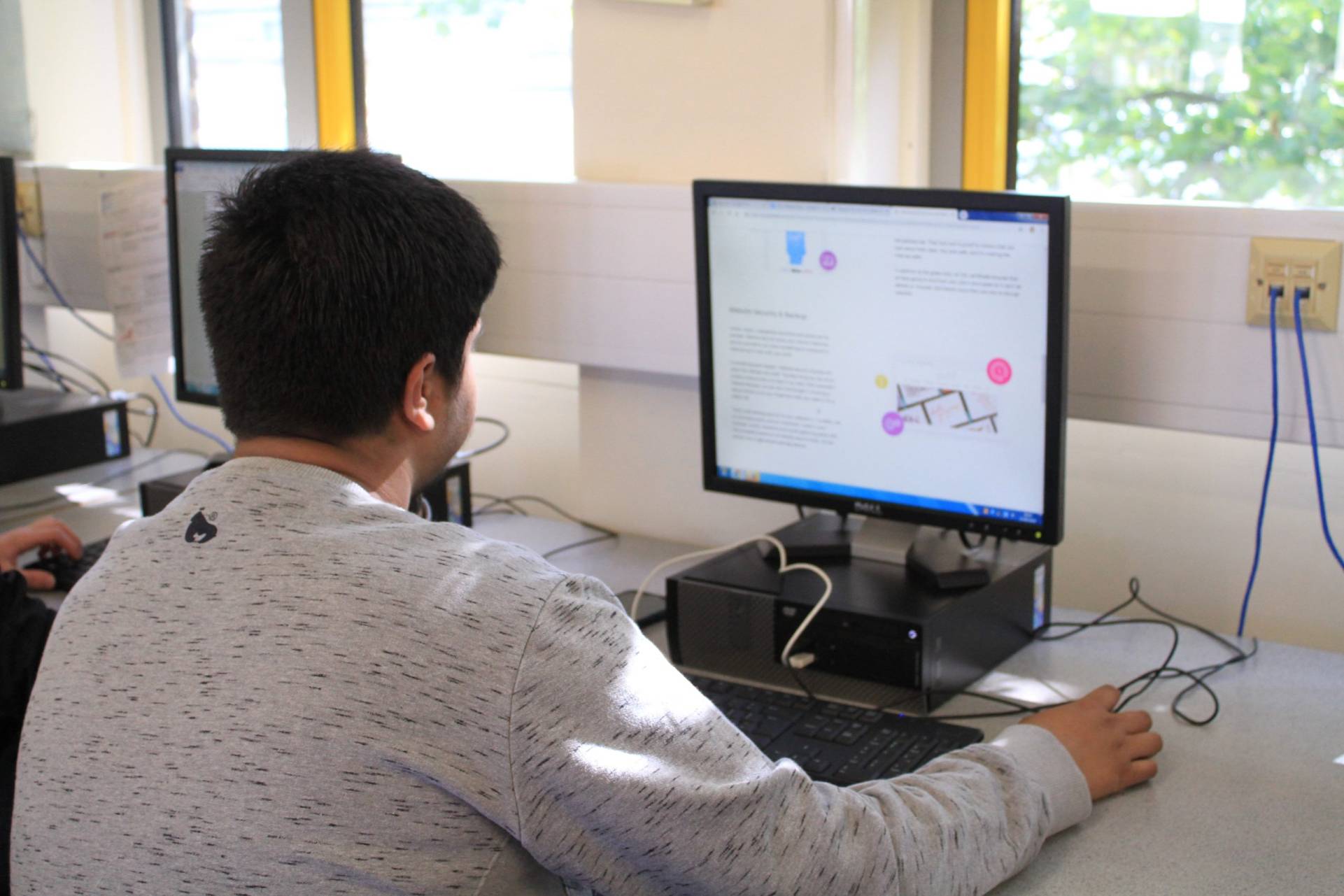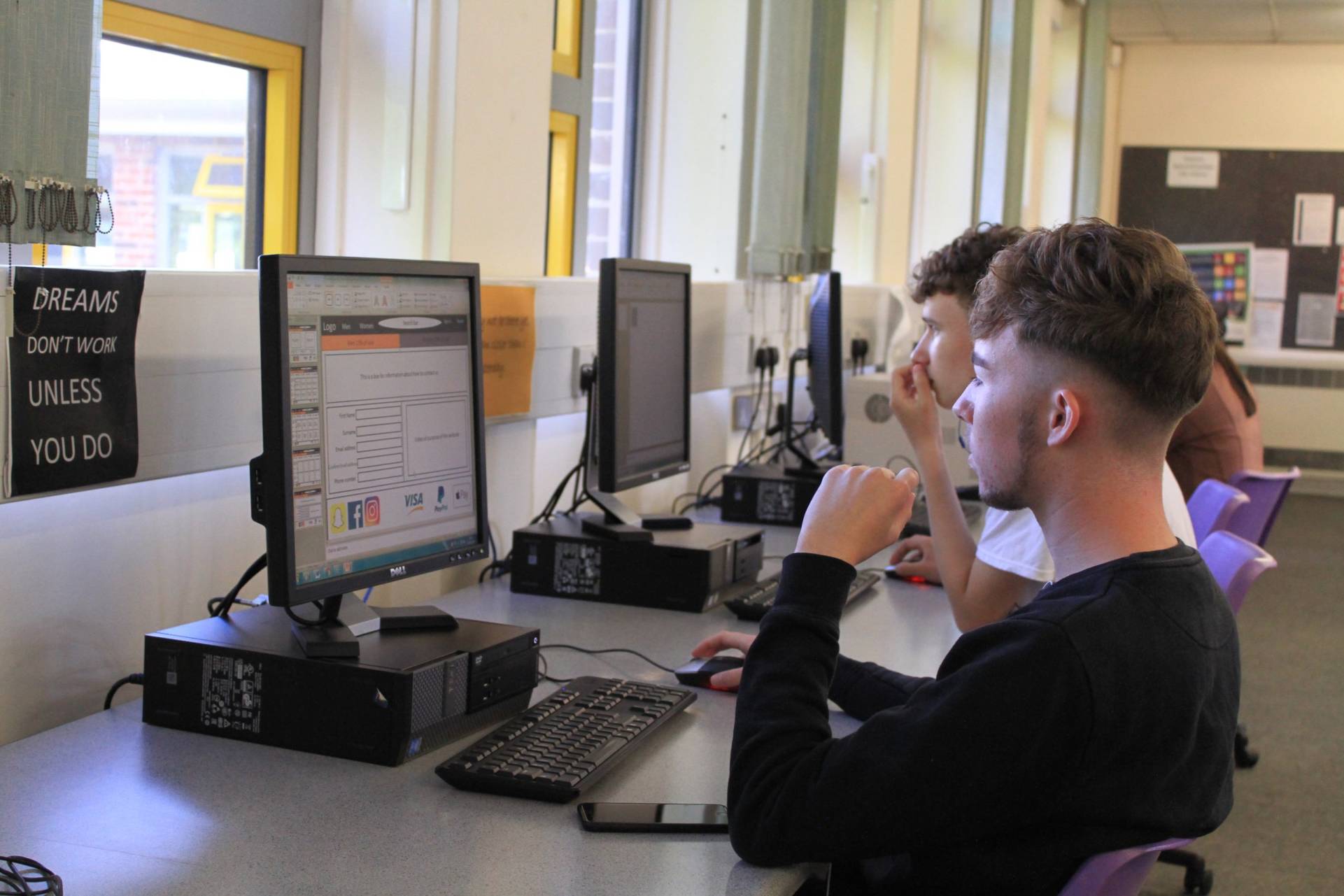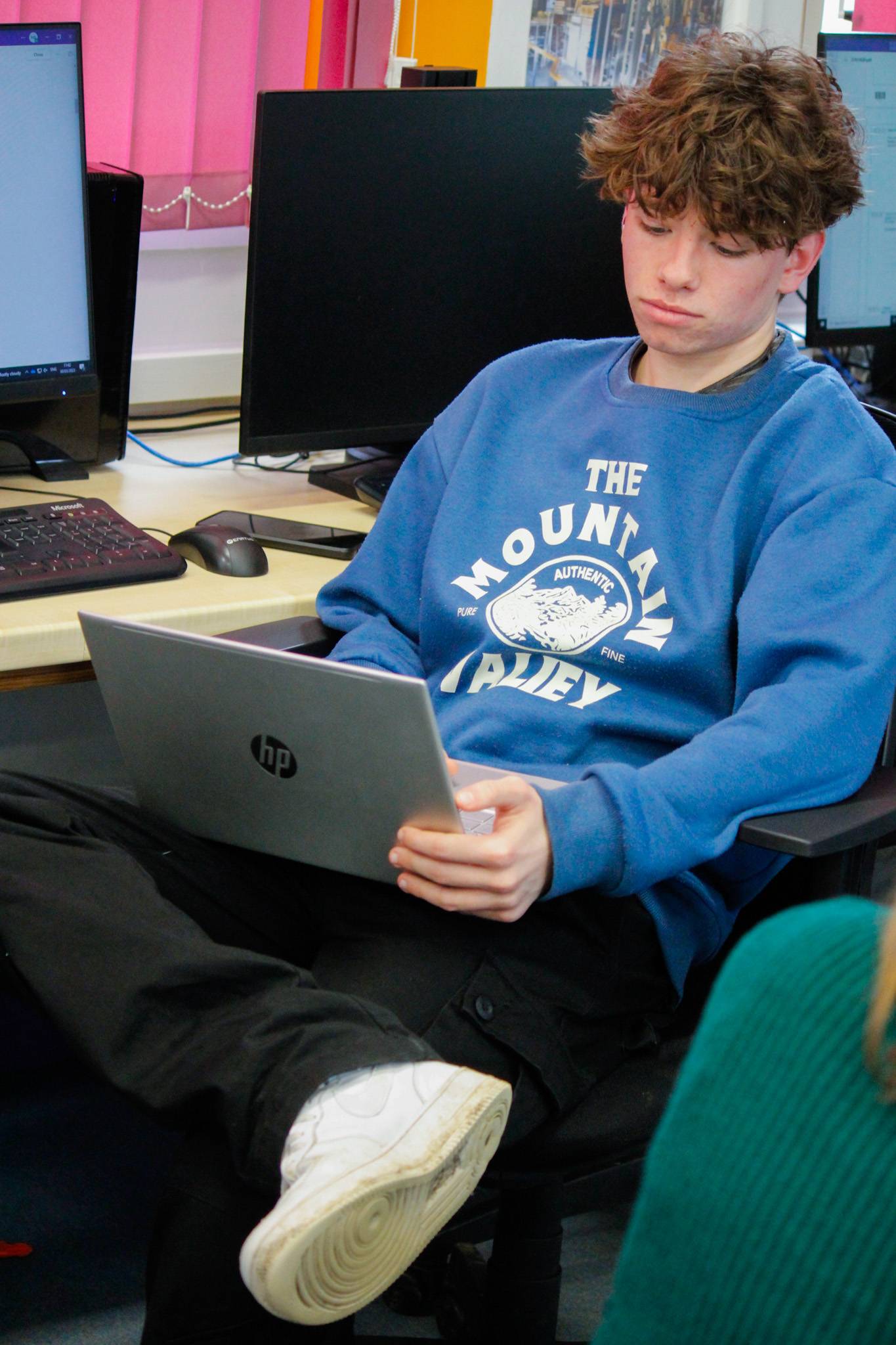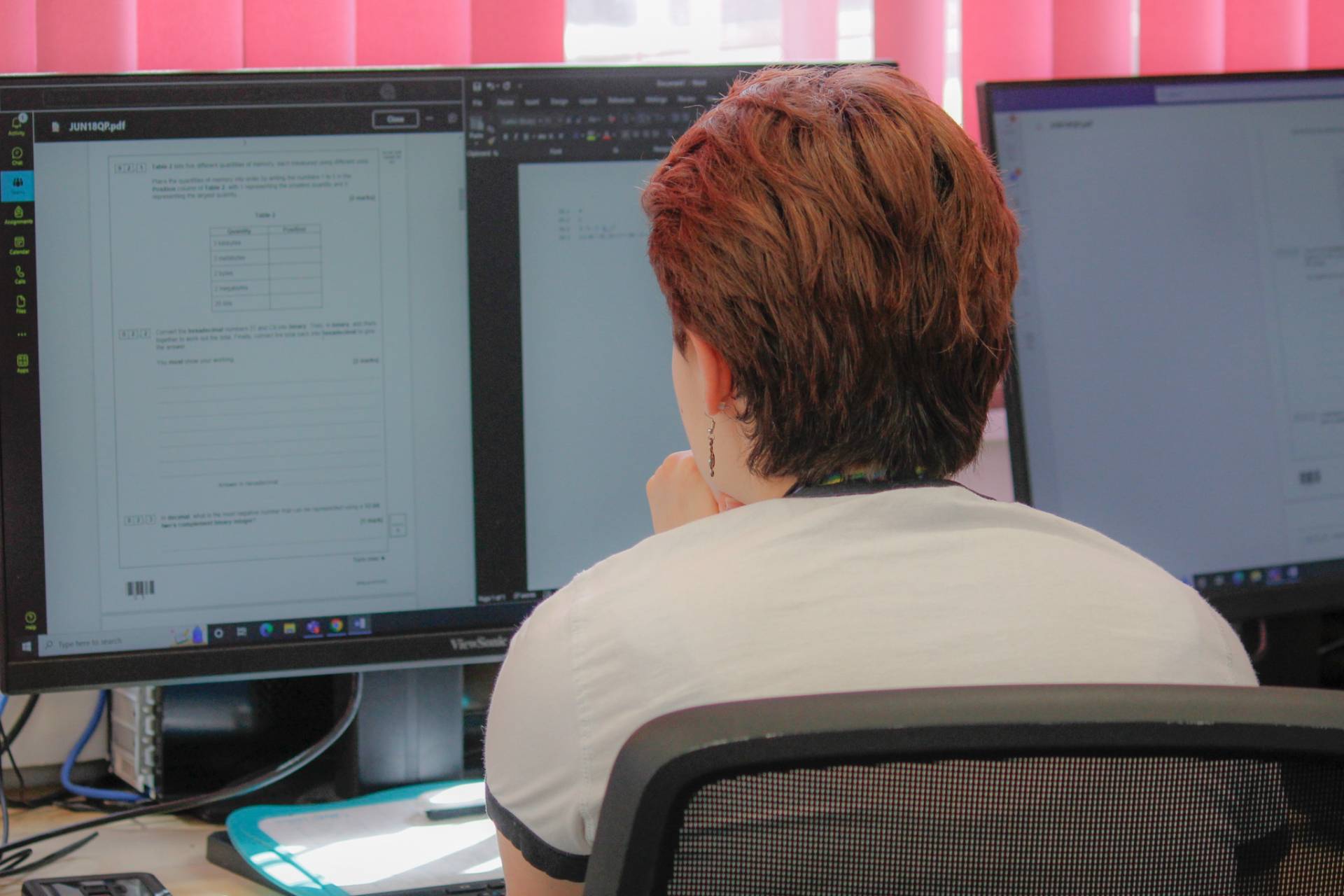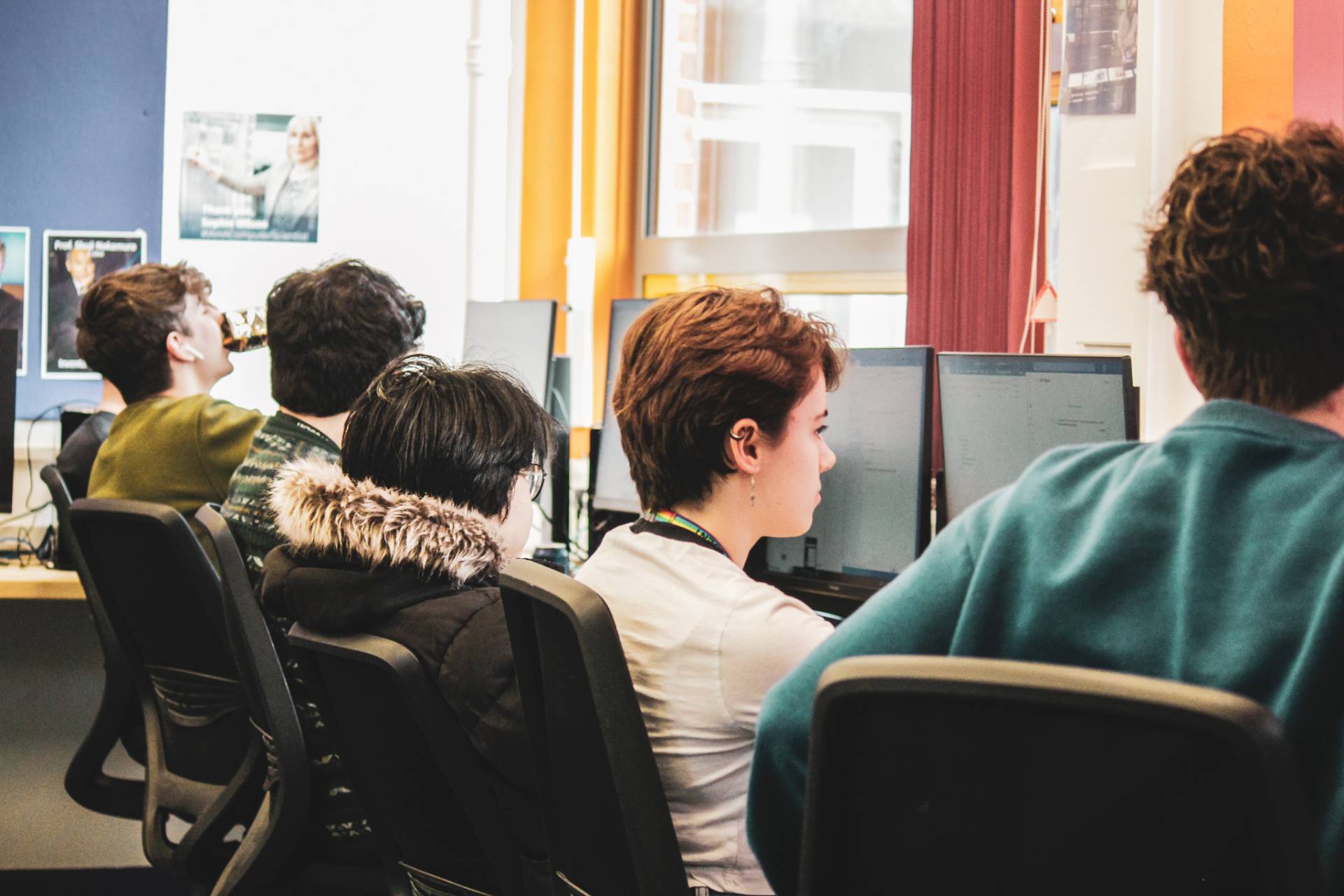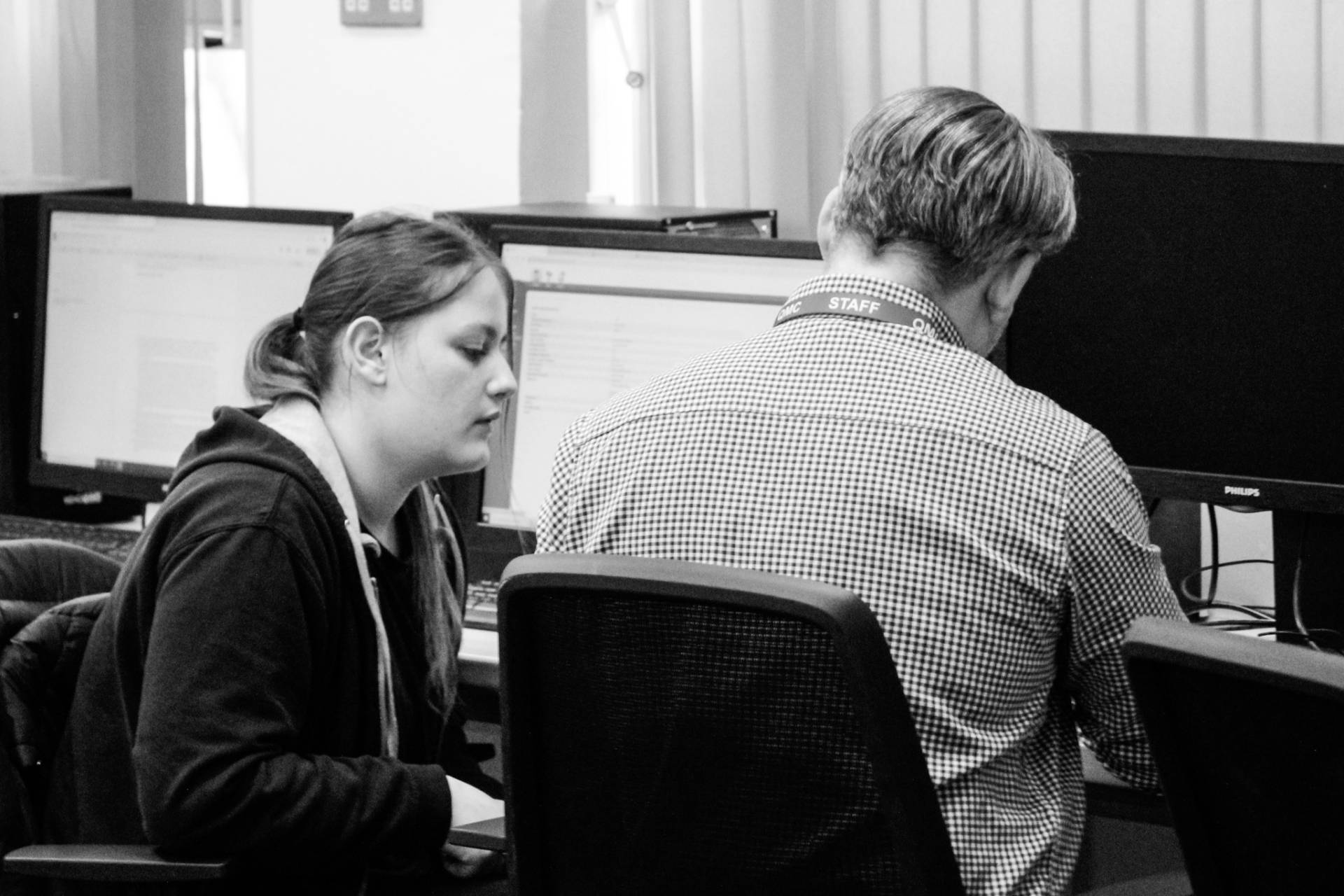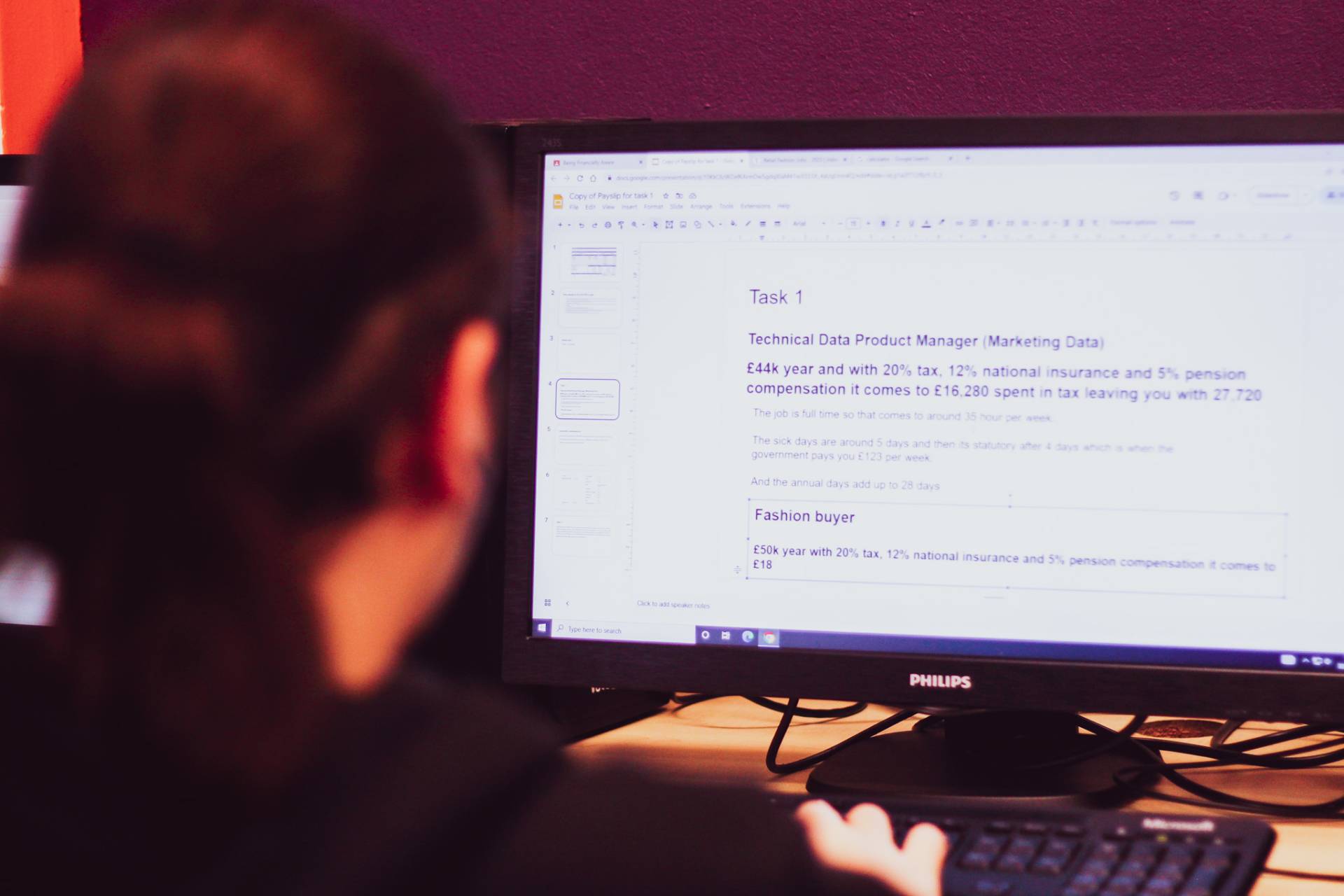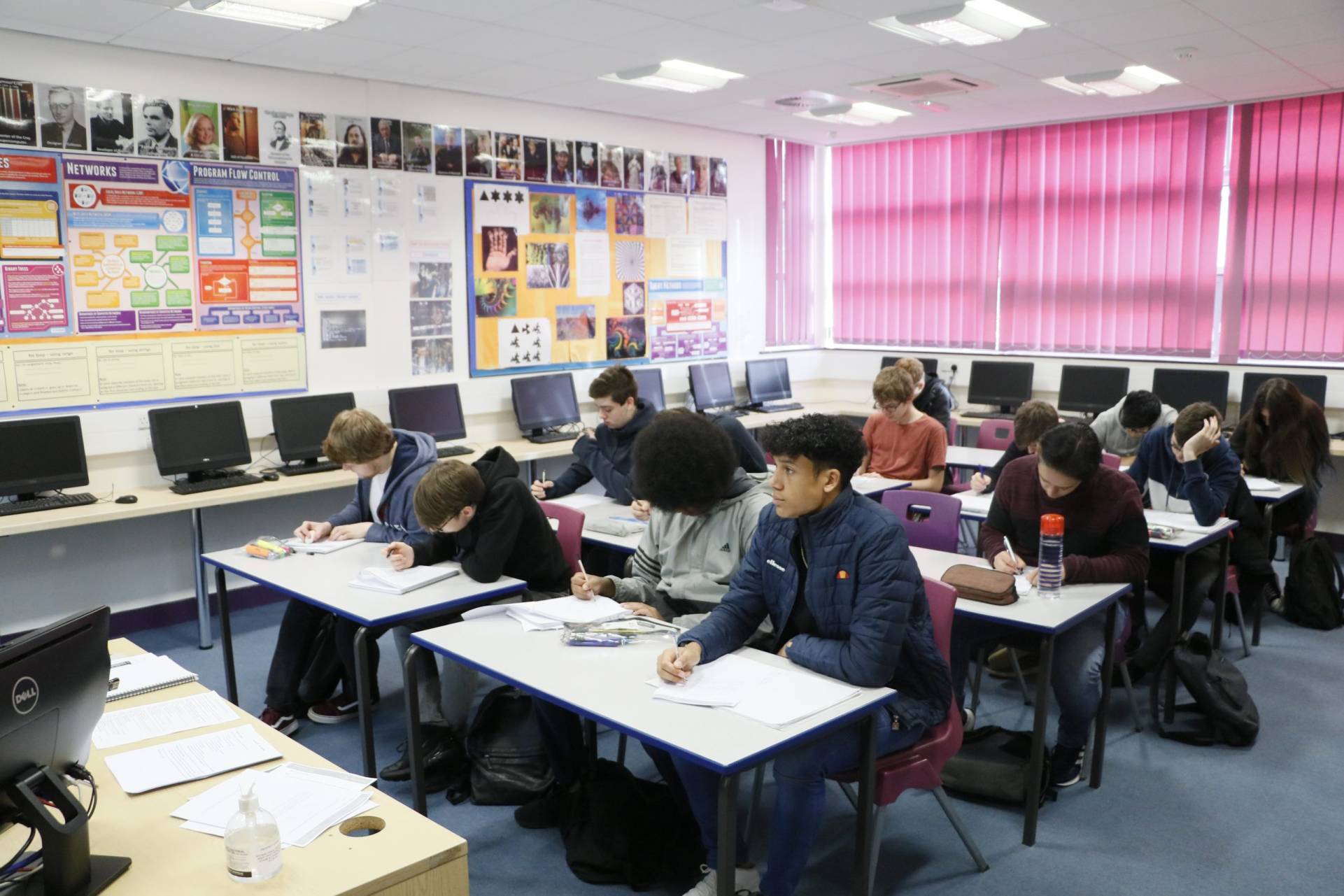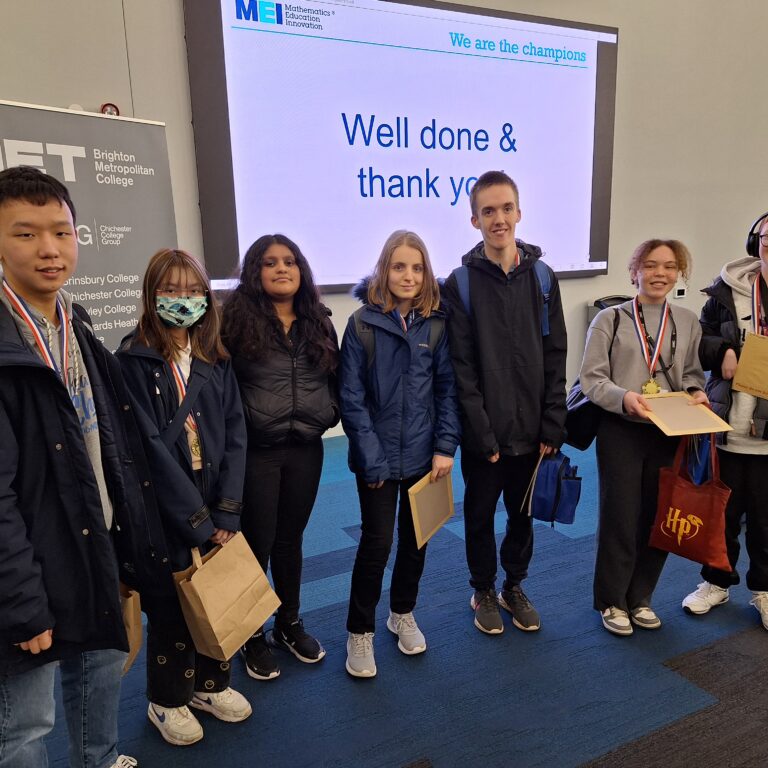The Computing course is designed for those interested in learning about the wide Computing sector. This Level 3 vocational programme is designed to help you develop your subject knowledge and skills of computer systems. You will use computational-thinking skills to solve problems, study IT system security threats and the methods used to protect against them. You will also investigate the computer games industry, even designing and developing your own computer game.
Queen Mary’s College offers a wide range of courses within the field of Digital Technology; Electronics, Computer Science & Information Technology. Whether your interests lie in artificial intelligence, cyber security or games development, our range of courses will give you the opportunity to develop your digital abilities.
By using using state-of-the-art equipment in dedicated labs, the skills you gain will help you make a successful transition directly into employment, onto a higher-level apprenticeship, or allow you to apply to the most selecting of universities. Whatever your ambition, improving your digital skills will help you get there.


